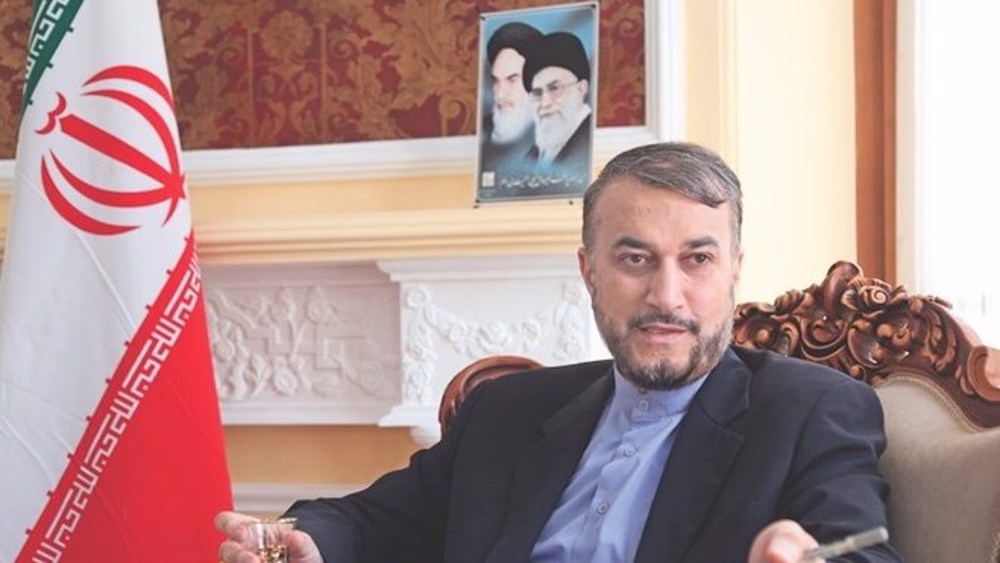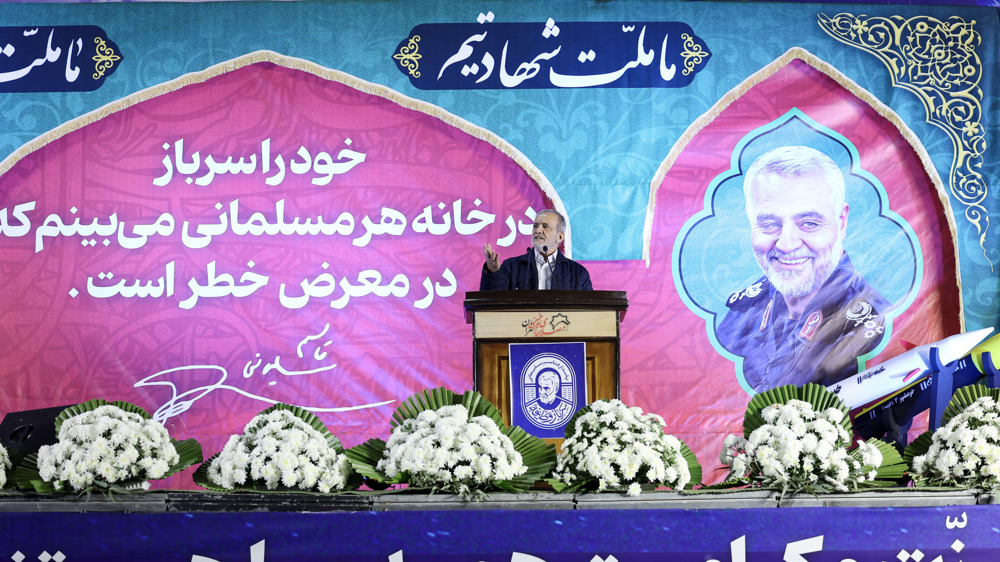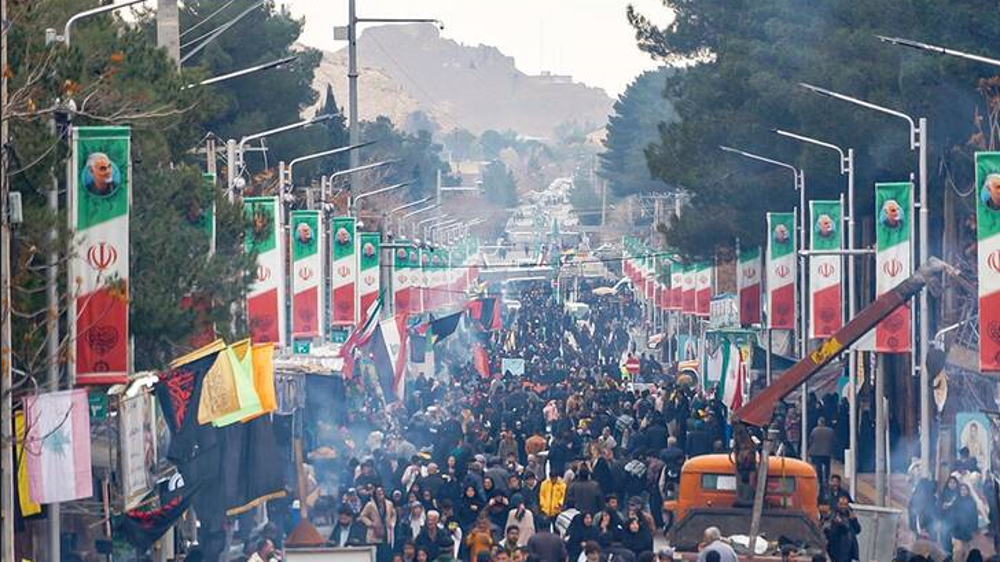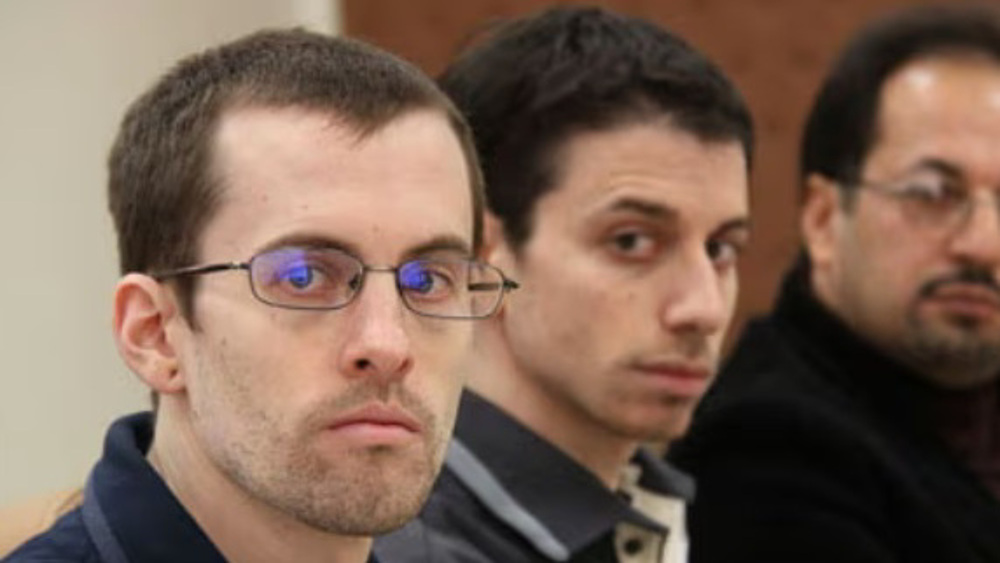Iran extends hand of friendship to all Balkan countries: Amir-Abdollahian
Iranian Foreign Minister Hossein Amir-Abdollahian has highlighted the importance of development and stability in the Balkans, saying Tehran extends its hand of friendship to all countries in that region.
Speaking to reporters in Belgrade following a meeting with his Serbian counterpart Ivica Dacic on Sunday, Amir-Abdollahian said Iran supports the territorial integrity of all Balkan countries, including Serbia.
“We wish for the growth, development, unity and stability of the entire Balkan region,” he said. “Considering the historical record of Iran’s relations with the Balkan region, we extend a hand of friendship to all the countries of that region.”
Amir-Abdollahian congratulated the 85th anniversary of the establishment of ties between the two countries, saying his visit to Belgrade was taking place at the official invitation of his Serbian counterpart
Iran and Serbia have maintained constructive relations and seek to further expand ties in all fields, he said.
In talks with the Serbian foreign minister, he continued, a wide range of issues pertaining to bilateral, regional and international cooperation were discussed.
The top Iranian diplomat added that Tehran is ready to host the 16th session of the two countries’ joint commission in the near future.
US, allies provoked riots in Iran to gain concessions: Amir-Abdollahian
Elsewhere in the presser, Amir-Abdollahian said the United States and some Western countries provoked the recent unrest in Iran to force Tehran to give concessions in the talks to revive the 2015 nuclear deal, formally known as the Joint Comprehensive Plan of Action (JCPOA).
The Iranian foreign minister emphasized that foreign forces have interfered and abused the riots, but the Iranian people have managed to achieve success in the “hybrid war” waged against their country.
Amir-Abdollahian pointed out that Iran is a democratic country, adding, “We hear and respond to the peaceful demands of the noble Iranian people on various issues but we do not allow anyone to [incite] riots and [carry out] act of terror in our country.”
Protests broke out in several Iranian cities after the September 16 death of Mahsa Amini, a 22-year-old Iranian woman who died in hospital three days after she collapsed in a police station in Tehran. An investigation attributed her death to her medical condition, dismissing allegations that she had been beaten by police forces.
Despite Iranian officials’ clarification on the circumstances surrounding Amini’s death, violent street protests have led to attacks on security officers and acts of vandalism against public property and sanctities.
Meanwhile, the Islamic Republic has strongly censured several countries for provoking the riots through their spy agencies and propaganda apparatus. London, in particular, hosts several anti-Iran networks, including Iran International, Manoto, and BBC Persian.
In a statement published on Saturday, the Security Council of Iran’s Interior Ministry said the enemy waged a hybrid war against the Islamic Republic to weaken national solidarity and hinder the country’s progress, stressing that some 200 people lost their lives in the riots sparked by separatist and terrorist groups since the outbreak in September.
It added that a few rioters conducted acts of vandalism, violence and insecurity in Iran and paved the way for separatist and terrorist groups to infiltrate into the country and carry out brutal attacks against innocent people.
‘Iran seeks permanent deal on removing sanctions’
Pointing to his Saturday phone call with European Union Foreign Policy chief Josep Borrell, Amir-Abdollahian once again reiterated the country’s stance on achieving an endurable agreement that serves its national interests.
“I talked with Mr. Borrell about the agreement to lift the sanctions and I emphasized that only a deal that works well for the interests of the Iranian nation and is permanent is valuable to Iran,” he said.
The Iran nuclear deal was signed in 2015 between Tehran and the United States, the United Kingdom, France, Germany, Russia and China during the presidency of Barack Obama.
However, Obama’s successor Donald Trump abandoned the JCPOA in May 2018 and slapped cruel sanctions on Iran. Biden had vowed to resume talks to revive the deal and remove the harsh US sanctions. Two years into his presidency, Biden has failed to keep his promise and is now threatening to take military action.
Iran maintains that it is necessary for the other side to offer some guarantees that it will remain committed to any agreement that is reached.
The talks to salvage the agreement kicked off in the Austrian capital of Vienna in April last year, with the intention of examining Washington’s seriousness in rejoining the deal and removing anti-Iran sanctions.
The talks remain stalled since August, as Washington continues to insist on its hard-nosed position of not removing all sanctions that were slapped on the Islamic Republic by the previous US administration.
VIDEO | Press TV's news headlines
Israel launches new strikes against Syrian defense facilities
Netanyahu orders Israel negotiators to continue in Doha
Israeli regime strikes buildings in Lebanon’s south
Suicides among Israeli forces surge amid Gaza war
Gen. Soleimani turned threats into opportunities and fortified resistance axis
Houthi: General Soleimani thwarted US conspiracies in West Asia
Islamic Jihad prevents Israeli captive from taking own life










 This makes it easy to access the Press TV website
This makes it easy to access the Press TV website